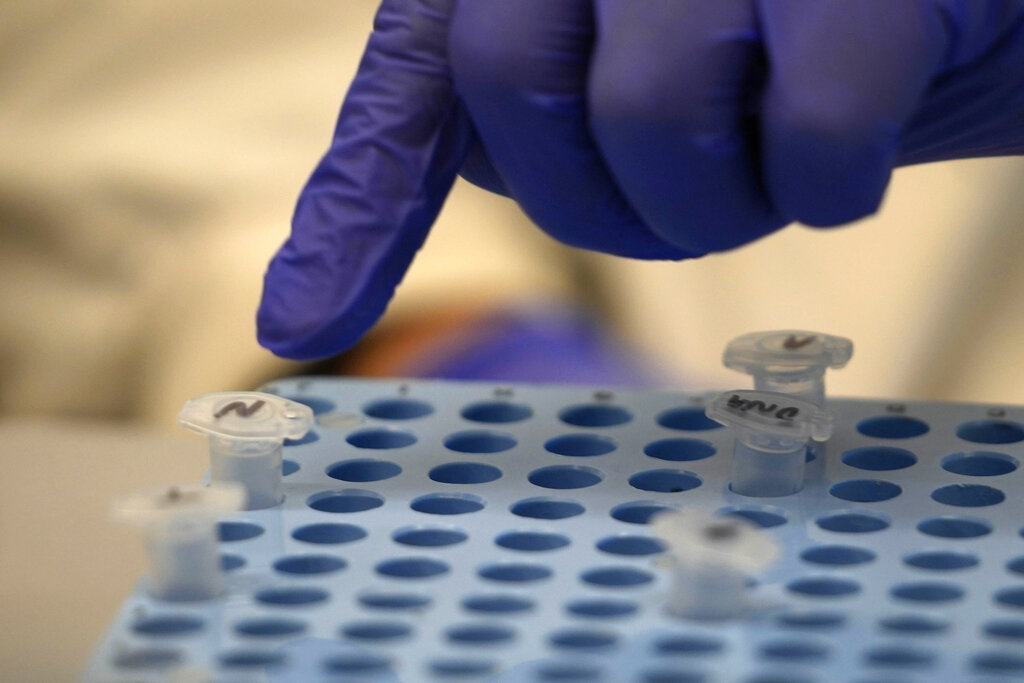ADF STAFF
Kenyan scientists are among those who have rapidly sequenced SARS-CoV-2 variants over the last two years, exemplifying the continent’s scientific capability.
Scientists from two laboratories in Kenya — the International Livestock Research Institute (ILRI) and the KEMRI-Wellcome Trust Research Program — were among 300 African researchers recently recognized in a study published in the journal Science.
ILRI senior scientist Dr. Samuel Oyola, a specialist in genomics and molecular biology, said the data has been used to track SARS-CoV-2 variants circulating in Kenya and across the continent.
“It has helped public health officials to monitor transmission dynamics and develop informed measures to control the spread of the virus in real-time,” he told Kenyan newspaper The Star.
“ILRI is playing a critical role in developing the capacity for pandemic preparedness and response in Africa through our advanced molecular and genomic technologies.”
The study, published on September 15, is titled “The evolving SARS-CoV-2 epidemic in Africa: Insights from rapidly expanding genomic surveillance.”
With more than 300 authors, it was the largest group of African scientists and public health institutions working together to support the data-driven COVID-19 response.
“ILRI is delighted to have partnered with such an impressive group of scientists,” Oyola said.
In the early days of the pandemic, fewer than 15 countries in Africa possessed the infrastructure to sequence genomes. Now 39 have their own sequencing facilities.
As of September, 52 African countries had deposited COVID-19 genomes in GISAID, an online repository that is the world’s largest digital database of SARS-CoV-2 sequences.
African scientists have collaborated to analyze more than 100,000 genomes.
“This successful sequencing for the novel coronavirus SARS CoV-2 in Kenya is a significant milestone in the response to the pandemic in Kenya and the entire world,” KEMRI Director General Yeri Kombe said in a statement.
“This will strengthen surveillance for tracking mutations of the virus and aid in the tracing of the sources of community infections.”
Amid the gloom of the COVID-19 pandemic, Africa’s capacity for scientific research has grown enormously and earned international appreciation.
Nowhere is this more evident than in the realm of pathogen surveillance and genomic sequencing, according to the study.
“A mix of strategies from local sequencing, collaborative resource sharing among African countries, and sequencing with academic collaborators outside the continent helped close surveillance blind spots,” the authors wrote. “Countries in sub-Saharan Africa, particularly in southern and East Africa, most benefited from the regional sequencing networks.”
Since early 2020, scientists have aggressively scaled up the ability to effectively detect and respond to SARS-CoV-2 variants, benefitting the continent and the world.
With leadership from the Africa Centres for Disease Control and Prevention (Africa CDC), a $100 million investment helped create a continental network of collaborators, called the Africa Pathogen Genomics Initiative (Africa PGI).
The World Health Organization’s Africa regional virologist Dr. Nicksy Gumede-Moeletsi marveled at the work of the Africa PGI.
“The region has established a coordinated mechanism to sustain and strengthen these gains,” he said in a statement.
“[It] has set up three centers of excellence for genomic surveillance, developed standardized guidance documents, offered capacity building for Ministries of Health’s personnel and set up laboratory infrastructure for routine pathogen genomic surveillance, including wastewater surveillance.”
John Nkengasong, former director of Africa CDC, was proud to see his stated goal of 100,000 genomes sequenced by the end of 2022 achieved months ahead of schedule.
But there remains much work to be done.
“Are we there yet? No,” he told Nature magazine. “It is our goal that as many African countries as possible should be able to do the sequencing locally and report the data in real time.
“So, like many other things on the continent, it takes time to build infrastructure and institutions and networks. But again, I’m really amazed to see the speed at which this particular network — the African Pathogen Genomics Initiative — has grown.”

